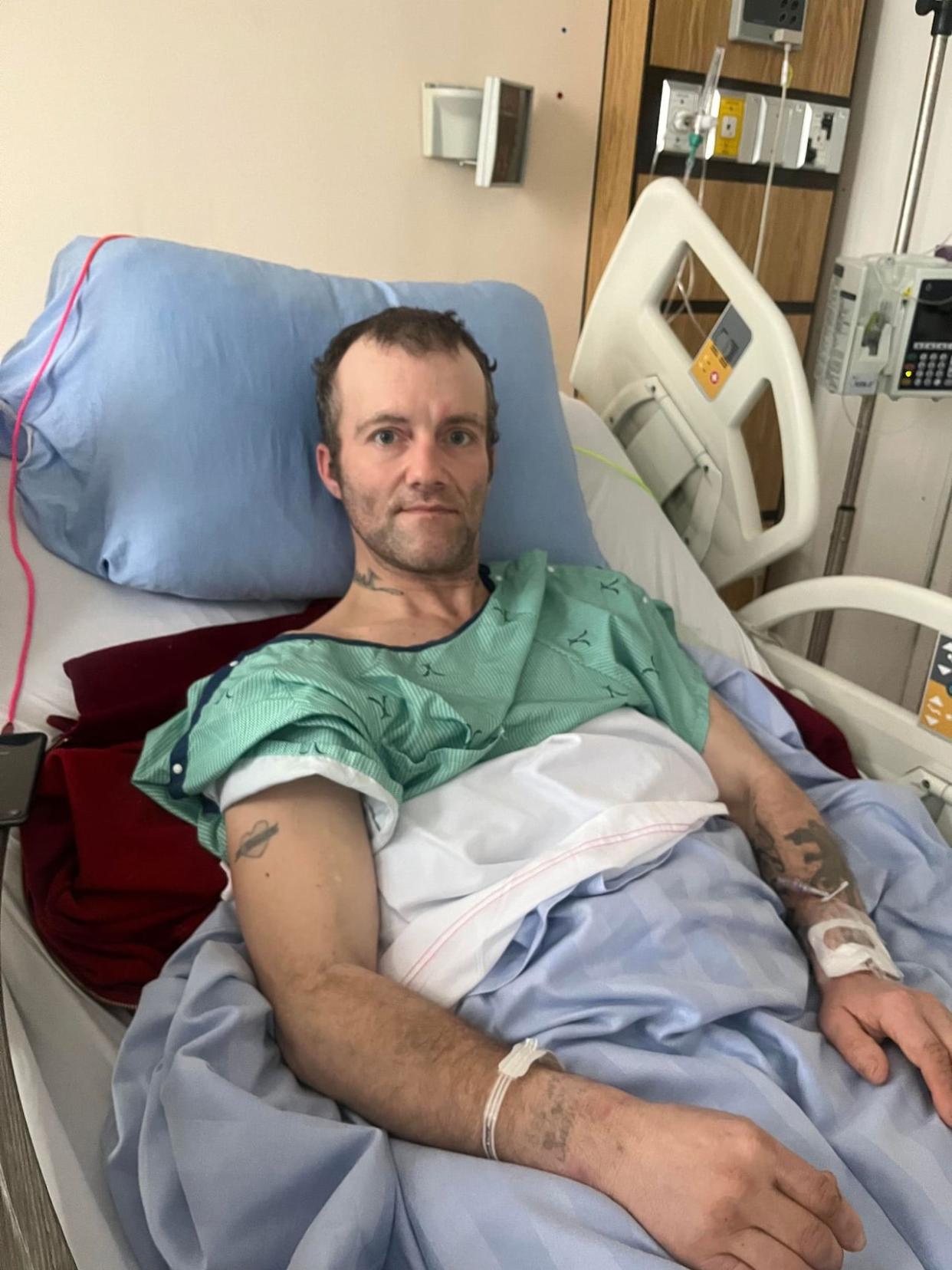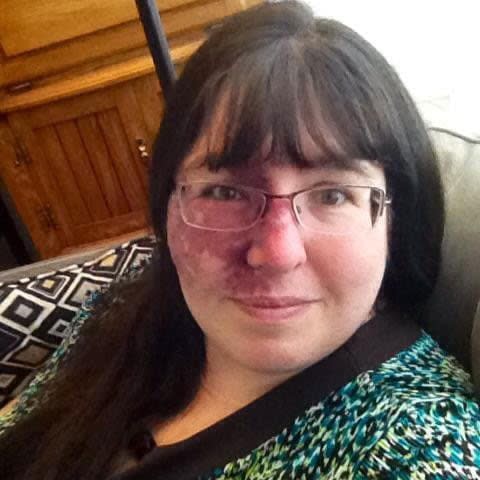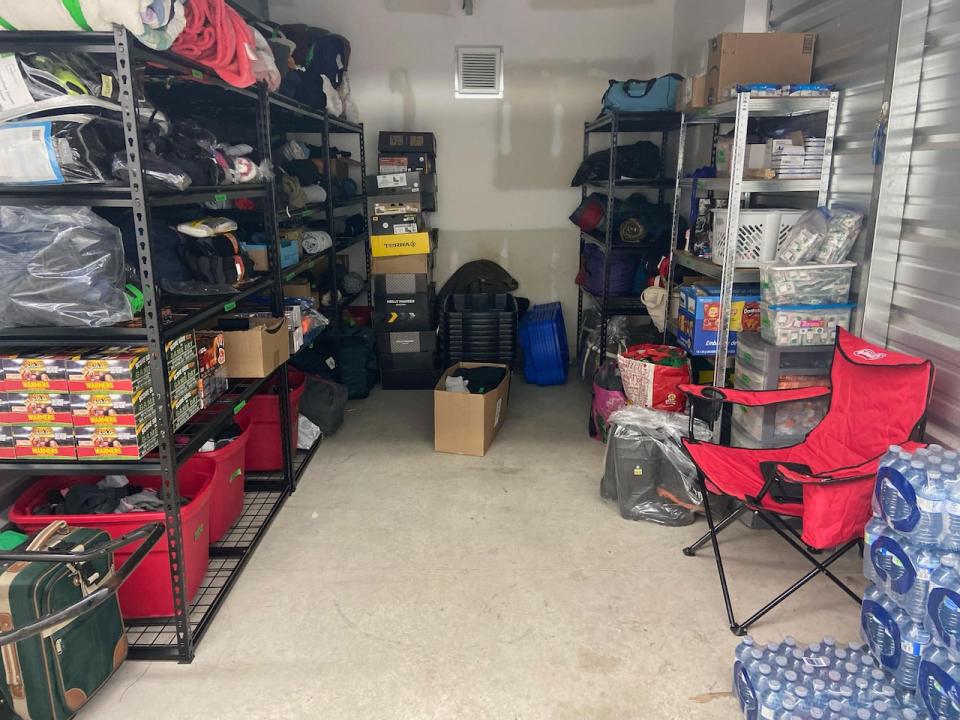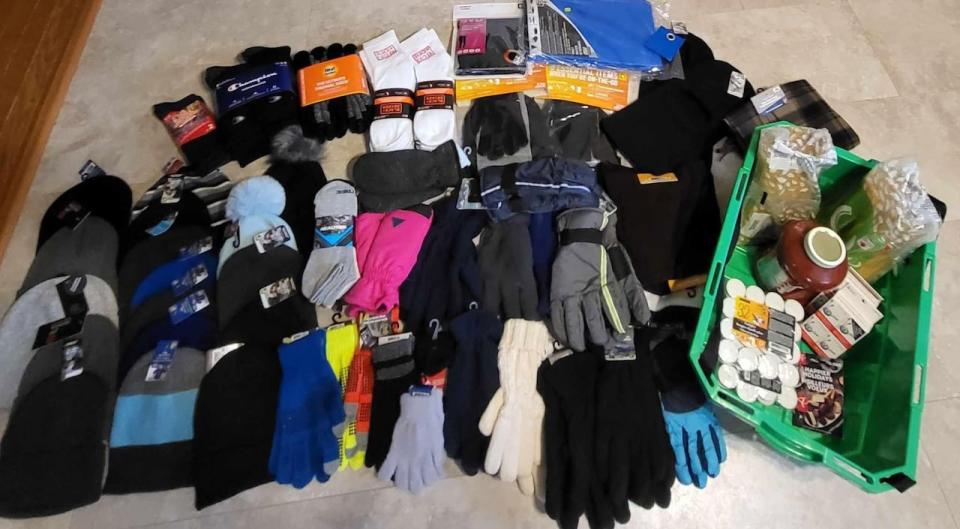Homeless people account for more than half of Horizon frostbite cases

More than half of frostbite cases treated by Horizon Health Network over the past two winters have involved homeless people.
There were nine cases last winter, statistics show.
Five of those, or 55 per cent, were people who identified as being unhoused or living rough, according to Dr. Patricia Bryden, clinical lead Horizon surgical services.
Two resulted in amputations, she said.
The previous year there were 15 frostbite cases. Nine of them (60 per cent) were homeless people, and two ended with amputations.
Amputation 'very rare'
"As the most common cause of frostbite is extended exposure to cold weather, which freezes the skin and underlying tissues, members of the homeless population are often at higher risk," Bryden said in an emailed statement.
Most cases of frostbite are treatable, but it can become severe if left untreated, she said.
Amputation is "very rare and only used in the most severe cases."
Last month, a homeless Saint John man lost his left leg below the knee and half of his right foot to severe frostbite.
Jamie Langille, 43, who has lived in a tent in a wooded area uptown for about three years, said he fell asleep one night with wet feet. His feet froze, and he developed gangrene, the death of body tissue.
"Frostbite is preventable, and a few simple steps — such as dressing in layers of warm, dry clothing, avoiding prolonged exposure to cold, windy conditions and knowing the signs of frostbite as they occur — can help reduce the risk," said Bryden.
'Shocking, but not surprising'
Johanne McCullough, the founder and director of Street Team SJ, which provides food and supplies to homeless people, calls the statistics "shocking, but not surprising.
"It's a shocking number. It should shock us, right? But it's also not surprising given the conditions that people are, you know, are living in day-to-day."

Street Team SJ founder and director Johanne McCullough hopes to prevent future cases of frostbite and amputations among people who are homeless. (Submitted by Johanne McCullough)
McCullough expects to see similar numbers this winter, but said her group is doing what it can to prevent more cases.
"We do try to educate folks, you know, that we encounter and provide them with as much as we can to protect them," she said.
Street Team SJ put out a special plea for hand- and foot-warmers after Langille's case and they've already received about 40 boxes, each containing about 40, which should be enough to get them through the season, with possibly some even left over for next year, said McCullough.
"It's been really — I don't want to call it 'overwhelming,' but at times, it has been. It's definitely filling up our shelves here."
Donations of warm clothing, boots, blankets and food have also been pouring in, along with financial donations, which they've used to purchase several sleeping bags that are rated for –32 C, as well as waterproof emergency sleeping bags.
"It's been amazing."

McCullough said she's gotten used to the community stepping up and helping when needed, but she's 'overwhelmed' by how full Street Team SJ's shelves have become with donated items in recent weeks. (Submitted by Johanne McCullough)
McCullough said they could use more sweatpants, especially for men in sizes medium and large, hats, gloves and socks. They accept new or used items.
Tealight candles are also on their wish list. "They burn long enough to kind of warm up a small space, but they're not going to stay burning for, you know, 10 hours at a time because they're just small. So there's less risk of a fire happening when you have a shorter burn time."
Meanwhile, a nurse who volunteers with Street Team SJ has provided team members with some training on the types of things to look out for when it comes to frostbite, and what they can tell people to do to try to protect their limbs, said McCullough.

Hats, gloves and socks are 'constantly requested items,' said McCullough. There is also a high demand for sweatpants and sweatshirts, which fit a wide range of people, she said. (Submitted by Johanne McCullough)
"The main thing is to allow the limbs to thaw and you know, get warmed up again. And it's difficult, but the main indication is to not let it freeze again," she said.
"It's difficult … when you're living outside. Ultimately, the solution is to not live outside, right?"
In 2020-21, only one of the seven frostbite cases Horizon treated was someone who was homeless, the statistics show. Two people required amputations.
None of the six frostbite cases in 2019-20 or seven cases in 2018-19 identified as being homeless, according to the data. There were no amputations.

